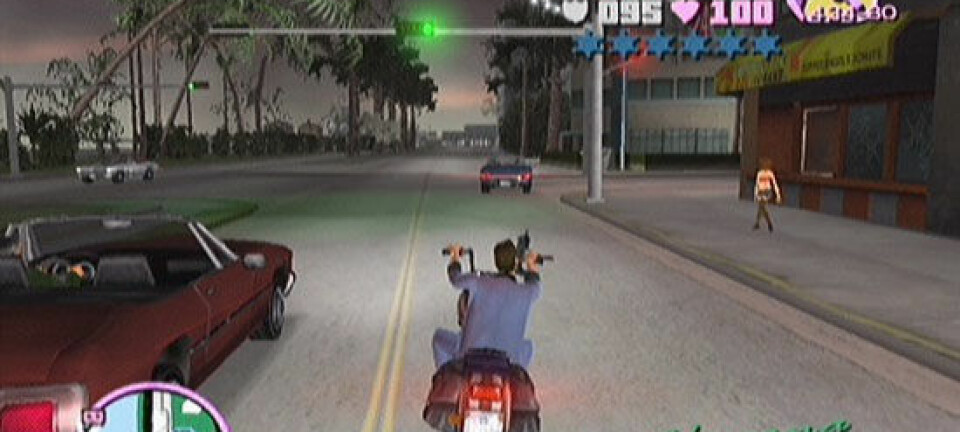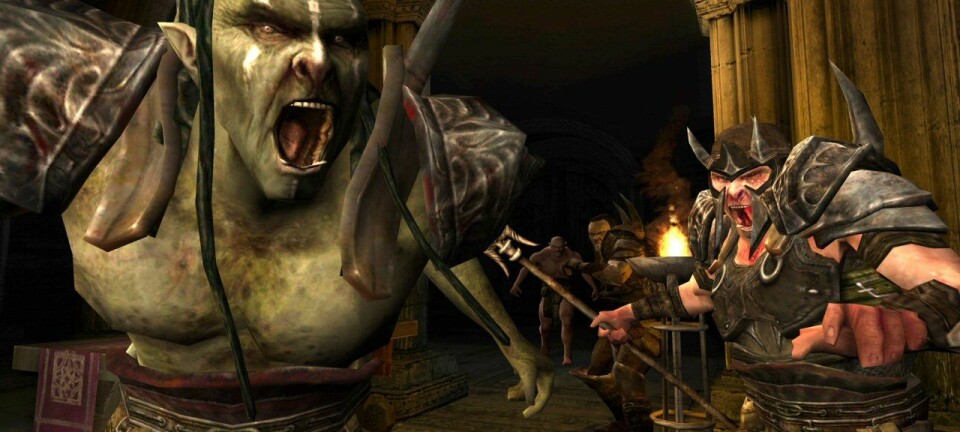
Movies and TV series use computer game dramaturgy
Computer games have left their imprints on a variety of media. TV series such as 24 and Lost, and movies such as Inception and Lord of the Rings are clearly inspired by narrative techniques used in computer games.
Today, computer games form a completely integrated part of young people’s frame of reference.
To men, In particular – even those reaching their 40s – it’s regarded almost as uncultured not to have heard of Donkey Kong, Pac-Man and Doom.
And this is why the narrative technique used in computer games is seeping deeper and deeper into other media such as movies and TV series.
This is the main point in the book Computerspil og de nye mediefortællinger (Computer games and new media stories – available in Danish only) by Bo Kampmann Walter, an associate professor in media studies at the University of Southern Denmark.
Films and TV series have become more ’computer games’ than aristocratic, book-like objects with a beginning, middle and end, and with heroes and antiheroes.
Bo Kampmann Walter
“Many of the people behind today’s movies and TV series have grown up with computer games,” he says.
“They bring their own reality into the scenes. Two hundred years ago, the narrative would have been inspired by Goethe. Today, the inspiration comes from computer games.”
The Beach ’nintendofied’ the world
Even in movies that appear to have nothing to do with the gaming universe, the computer game narrative technique plays a central role in the storyline.
In The Beach, a movie in which a group of hippies create their own society far removed from civilisation, the delicate suspension of normal societal progress is sustained only for as long as the batteries for their Nintendos are charged. And in one of the movie’s key scenes, all of reality becomes ‘nintendofied’.
The protagonist Richard, played by Leonardo DiCaprio, is banished from the hippie village and is left to his own devices in the surrounding woods where he ends up engaging in youthful folly.
The movie portrays how Richard degenerates from his own humanity into a life driven solely by paranoid instincts, by suddenly placing him in a pixelated Nintendo reality.
“For a brief moment, Richard is not a living character, but a pixelated character, an avatar, who in abrupt and hysterical jerks collects points, passes in-game objects and crosses obstacles, and thus becomes the centre of a ludological framework,” says Walter.
Computer games determine the frame of reference
What’s interesting is that the director, the author and the screenwriter regard computer games as part of the frame of reference for DiCaprio’s character.
Richard is supposed to appear like a normal person, and when the film premiered back in 2000, computer games formed part of the general reference for men in their 20s.
“The world in which Richard seeks refuge as a defence against a menacing external world and the reality that represents his safe reference base are reflected in the world of computer games, cartoons and neo-mythological film classics,” argues the researcher.
The book’s central point is that computer games have become the driving force behind many other narrative techniques – what Walter refers to as ‘the ludic dominance’.
”Films and TV series have become more ’computer games’ than aristocratic, book-like objects with a beginning, middle and end, and with heroes and antiheroes.”
Inception – a level-based story
He mentions how a number of recent movies use a level-based narrative technique rather than the traditional one.
A film like Inception proceeds literally in levels, in which the character – who incidentally is also played by Leonardo DiCaprio – travels deeper and deeper into his dream layers. Getting down to the next layer requires that he defeats a boss.
This is a technique that’s directly taken from computer games, where gamers are usually required to defeat a particularly strong opponent to advance to the next level.
“We see this development in Peter Jackson’s film adaptation of the Lord of the Rings trilogy. The first film follows a very linear structure, but the second and third ones are much more reminiscent of computer games in their structure,” says Walter.
“A number of action sequences have been inserted, which the remainder of the plot then leads to. When the heroes look out over the plains, the conversation centres on the next battle, and the outcome of this battle indicates whether the strategy was adequate, whether they picked the right weapons and whether they have gathered enough ‘experience points’ to defeat the opponents. In this way, the scenes between the action sequences function like the passive cut-scenes in computer games.”
Lost and 24 revealed a tendency
The first time the researcher really noticed this ‘gamification’ of other media was when the TV series 24 emerged in the early ‘00s.
24 uses the same narrative technique as the last two Lord of the Rings movies. The main character, Jack Bauer, is constantly trying to reach the next level.
One TV series that has taken the inspiration from computer games a step further is Lost. The writers of Lost say that the series is inspired by the adventure game Myst, in which players find themselves on an island without knowing why, what to do and what their goal is.
But the TV series universe goes even deeper than that:
“With Lost, the TV series is only the tip of the iceberg,” says Walter. “The producers have built an entire universe around the series. On the internet, fans can go much deeper into their exploration of the Lost universe.”
Complex worlds more important than characters
“In the future, we’ll be seeing that popular media will be based on degrees of identification,” says the researcher.
Just like with Lost, there will be a TV series for the casual viewers, while there will be an additional universe for hardcore fans to explore. Producers will be focusing more on creating complex fictional worlds than on characters.”
----------------------------
Read the Danish version of this article at videnskab.dk
Translated by: Dann Vinther
External links
- Bo Kampmann Walter’s profile (in Danish only)
- About game studies (Wikipedia)
- About gamification (Wikipedia)









